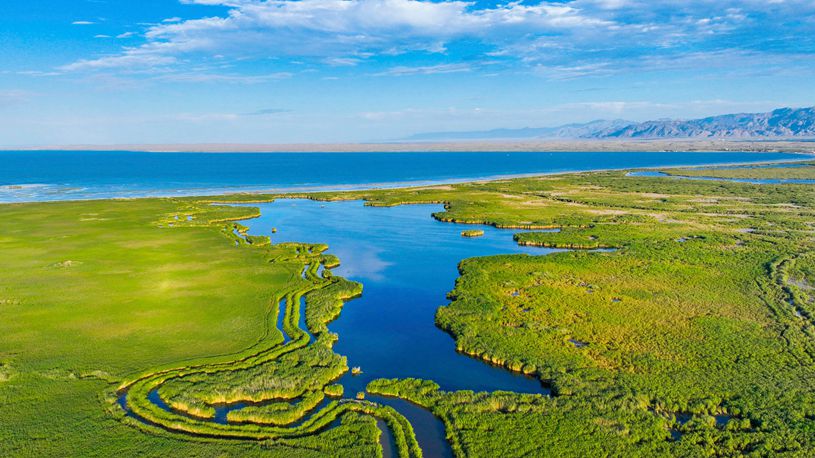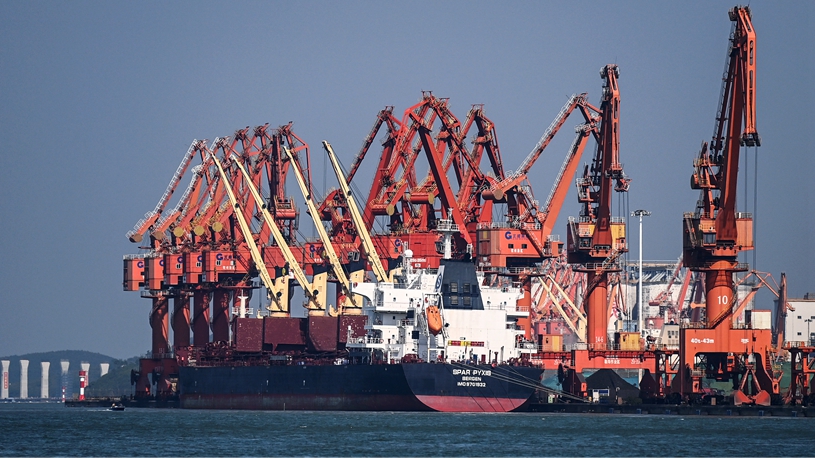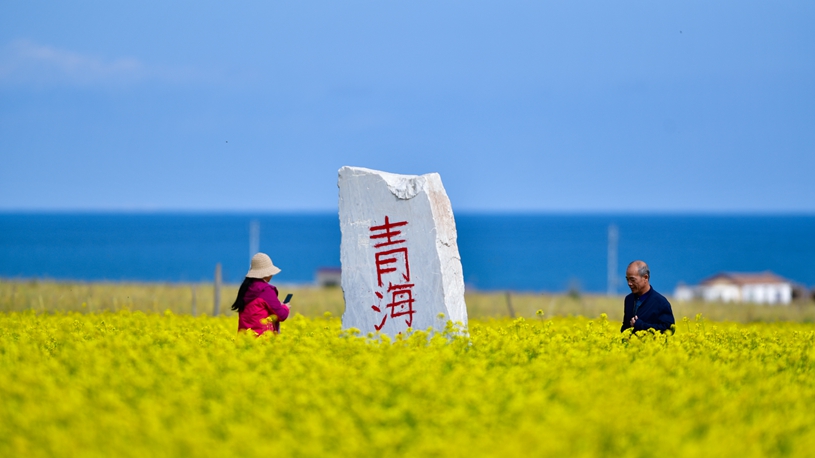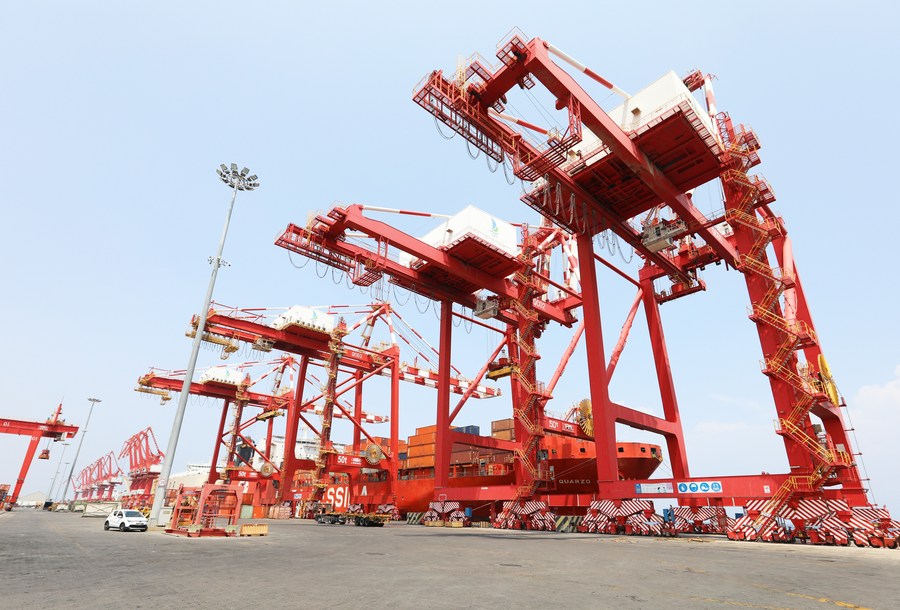
Photo taken on Sept. 20, 2022 shows the Doraleh Multi-Purpose Port in Djibouti City, capital of Djibouti. (Xinhua/Dong Jianghui)
The Red Sea nation of Djibouti located in the Horn of Africa is consolidating its position as a regional logistics and commercial hub thanks to robust cooperation with China over the years.
DJIBOUTI CITY, Nov. 10 (Xinhua) -- The Red Sea nation of Djibouti located in the Horn of Africa is consolidating its position as a regional logistics and commercial hub thanks to robust cooperation with China in connectivity projects over the years.
Major cooperative projects, such as the Doraleh Multi-purpose Port (DMP), the Djibouti International Free Trade Zone (DIFTZ), and the transnational railway that stretched 752 km from the Djibouti Port to the landlocked Ethiopian capital Addis Ababa, have been hailed as connecting bridges to fulfill the nation's socio-economic transformation.
In a recent interview with Xinhua, Aboubaker Omar Hadi, chairman of the Djibouti Ports and Free Zones Authority, said he is glad to cooperate with China to expand Djibouti's connectivity to the world, saying such cooperation brings more business opportunities and economic benefits not only to Djibouti, but also to Africa as a whole.
Taking the Doraleh Multi-purpose Port (DMP) as an example, Hadi said that in the past five years, the port has developed and is now one of the deepest seaports in the region, with cargo shipped throughout Africa.
The port project built by Chinese enterprises was officially opened in 2017 with an annual design capacity of 7.08 million tonnes of cargo and 200,000 TEUs in container capacity. The new port has increased the efficiency of vessel operations by nearly four times and reduced berthing time through highly automated and modernized loading and unloading methods, improving the port's competitiveness and cargo handling revenue for the port company.
In recent years, Djibouti has been actively participating in the Belt and Road Initiative, working with China on infrastructure and trade projects that dovetail with the "Djibouti Vision 2035" plan to give full play to the nation's unique geographic advantages and to achieve the country's goal of becoming a regional shipping and commercial hub.
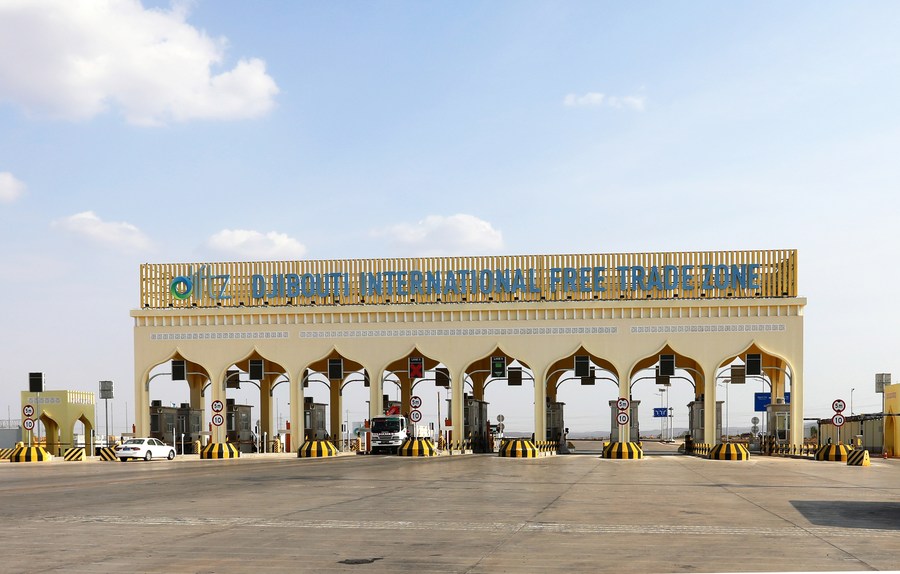 Photo taken on Sept. 14, 2022 shows the gate of the Djibouti International Free Trade Zone in Djibouti. (Xinhua/Dong Jianghui)
Photo taken on Sept. 14, 2022 shows the gate of the Djibouti International Free Trade Zone in Djibouti. (Xinhua/Dong Jianghui)
Chinese Ambassador to Djibouti Hu Bin told Xinhua that apart from the port, the Chinese-built Djibouti International Free Trade Zone (DIFTZ) which officially opened in September 2018 has become an important platform for Djibouti's economic transformation.
"While the port focuses on transshipment work, the DIFTZ provides a perfect platform for high-value-added products. Goods arriving at Djibouti ports can be processed there and then sold by other enterprises in the zone, creating a complete supply chain, which will diversify Djibouti's high value-added economy," Hu said.
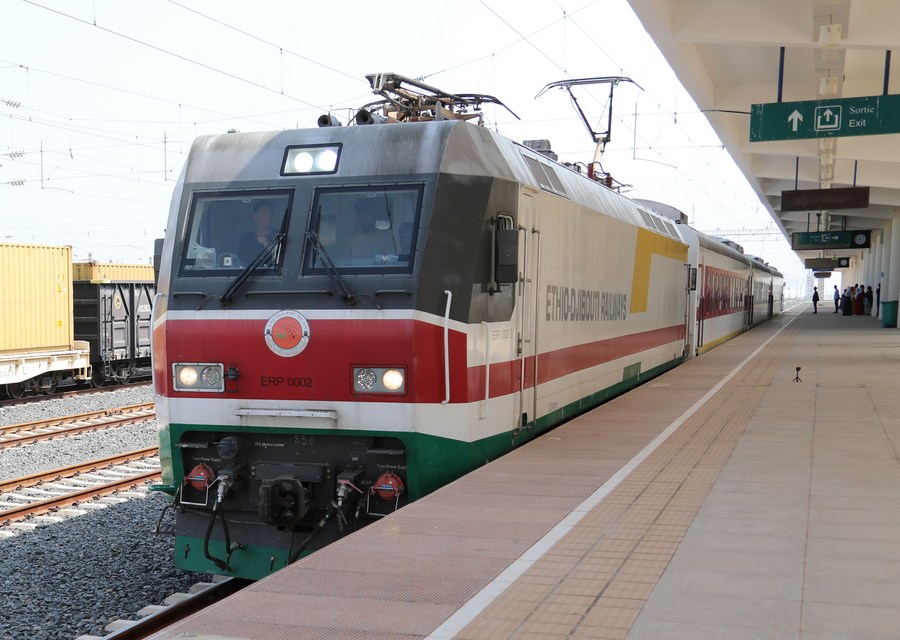
A train stops at the Nagad railway station along the Addis Ababa-Djibouti railway in Djibouti, Sept. 19, 2022. (Xinhua/Dong Jianghui)
Regarding the Chinese-built railway linking Djibouti to its neighbor Ethiopia, a mega-project that commenced commercial operations in early 2018, Wang Yuge, head of operation and maintenance of the railway in Djibouti, said that the rail line has improved the port transportation capacity and shortened the time for goods to be transported from Djibouti ports to Addis Ababa from up to 3-7 days to 18 hours.
"With 70 percent of imported goods from Djibouti ports entering Ethiopia and 90 percent of Ethiopia's exports going to the world through Djibouti ports, the Addis Ababa-Djibouti Railway has promoted the region's continued development and integration," Wang said.


